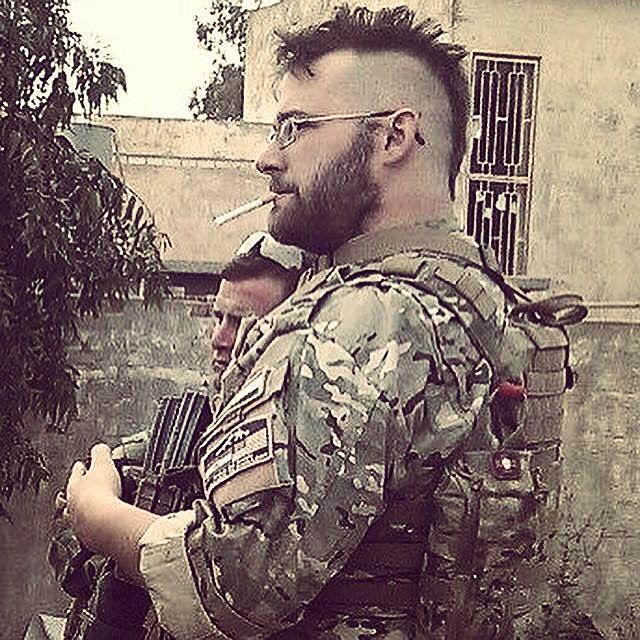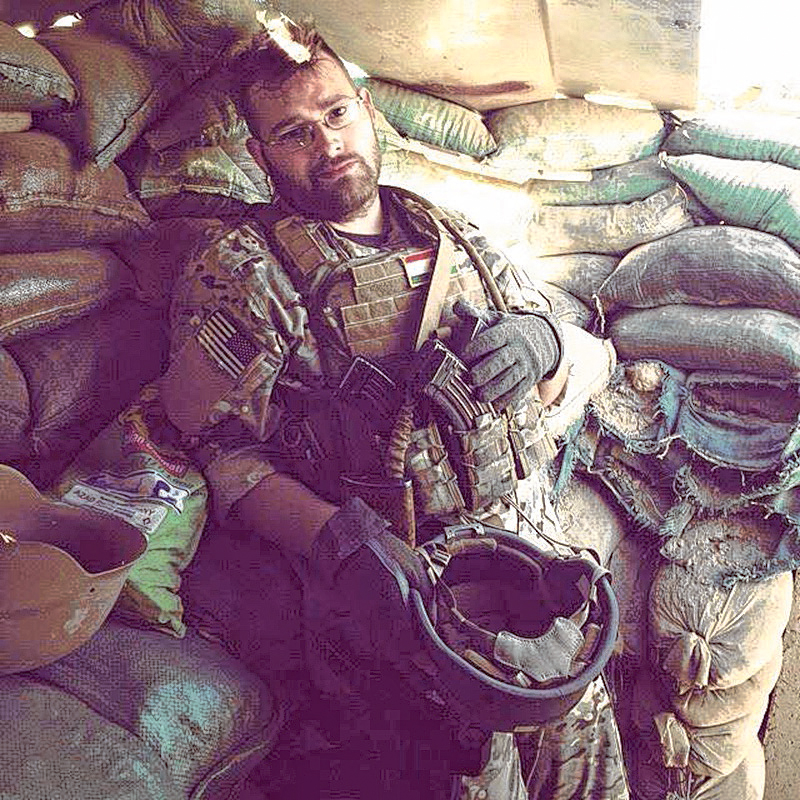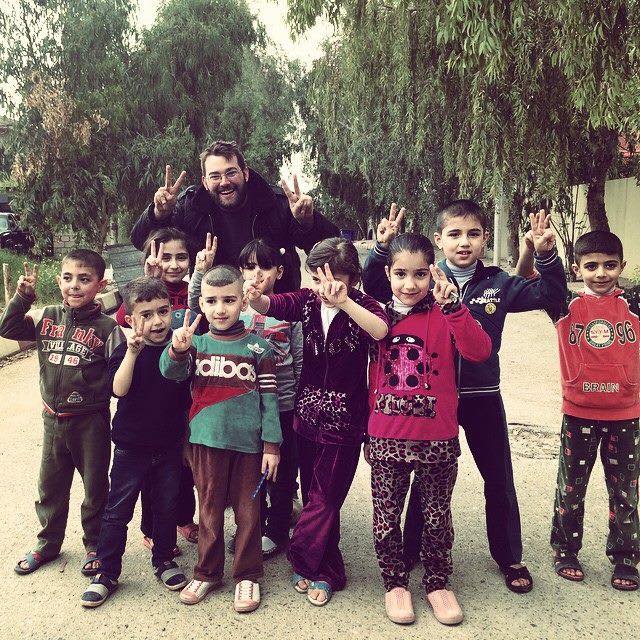Aaron Core is back in Iraq.
The former Army National Guard specialist did a tour in the country from 2009-2010, but this time, he isn't there on orders, and he isn't getting paid.
Continuing the long tradition that got Tennessee nicknamed the Volunteer State, the 27-year-old Rhea County native is fighting alongside Kurdish Peshmerga forces in northern Iraq, helping to push ISIS out of their territory.
Core left the military in 2012. He soon started to miss it, but there was a troop drawdown under way and the military had stopped letting service members re-enlist. However, when the group that Core and his fellow soldiers call "Daesh" -- the word is an acronym of the group's full Arabic name, and also can mean "a bigot who imposes his view on others"-- rose to power, he couldn't sit still.
"After ISIS executed their first American, it really infuriated me that the U.S. were not willing to set boots on the ground," Core said in an email and Facebook interview. "I was already ill from us pulling out of Iraq so soon, anyway."
Core started hearing about Western soldiers -- including some Operation Iraqi Freedom veterans like himself -- joining Kurdish militias in Syria to fight Daesh, which had set up a theocratic caliphate across a large swath of conquered land spanning the Iraqi-Syrian border.
Over the next several months, he developed contacts within the Peshmerga. He flew to Jordan in March and made his way to Iraq from there.
Core said fighting in the Kurdish militia is "extremely different" from his time in the U.S. military. There is very little support structure. Their weapons are old Soviet rifles, and things like tools for clearing improvised explosive devices or air support are almost nonexistent.
"The Peshmerga is such a new force, and with the lack of funding it literally feels like we've been pushed back 70 years as far as tactics," he said. "Out here we are fighting as they did in World War I. Trench warfare, pretty much."
According to Core, Daesh doesn't have the same problems. They're very well-funded, he said, getting money from the banks of cities they've taken control of. They're in possession of oil fields. They even make money from human trafficking.
And Daesh is well-trained, he said. Special operations soldiers from different countries have joined its ranks and are responsible for training other fighters. He said they're a different breed of terrorist.
"They are organized, they are trained and they are deadly," he said.
Core couldn't disclose his exact location, but said his mission has been to hold the line and not let the enemy advance. So far, he's been involved in two significant engagements with Daesh, including a major offensive involving several battalions of Peshmerga and coalition air strikes. Two Americans he knows were injured by gunfire and mortars in that battle.
Core didn't wish to involve his family in this story other than to say they understand why he's there and support what he's doing. Core is unmarried and doesn't have children, though he said he really misses Willow, his pit bull mix back home.
Tabitha Higgins, of Chattanooga, deployed to Iraq with Core in 2009, and remembered her friend as the guy sitting outside his tent with a guitar in his hand. She was surprised to hear Core volunteered to fight Daesh, but said it was in line with who he is.
"This is something that he's passionate about," Higgins said. "Helping others. Helping people and seeing the bigger picture. Being part of something for a much bigger cause."
As far as the risks go, Core said he isn't worried about dying. He got that out of his system on his first deployment.
"Once that first bullet flies over you, you stop being afraid," he said.
He finds combat relaxing, in a way. The stress of it, he said, helps him think more clearly and operate more quickly. Getting captured doesn't concern him, either, despite Daesh's very public and very brutal manner of murdering its prisoners.
"The only way I'll allow Daesh to kill me is in a firefight, not in an orange jumpsuit on CNN," he said.
Core believes Daesh can be defeated. But he says it will take better weapons, better ammunition and better training. He doesn't think the U.S. military needs to have full-scale involvement. He thinks the Peshmerga has what it takes to defeat Daesh with just a little help.
"If prior service veterans were willing to come out here and train the Pesh as well as fight as volunteers, we could really do a number on Daesh," he said.
Core, who reached out to the Times Free Press to share his story, said he wanted to do so because he felt people in the United States are too saturated with entertainment and too numb to the world around them. He said the Kurds have shown him something else entirely.
"The Kurdish people have shown me a level of patriotism and love that I haven't seen come from the citizens of the U.S. in a while and I would hope my story could change that," he said. "We all live and share this world together and we need to learn how to love and help one another."
Contact Will Healey at whealey@timesfreepress.com or 423-757-6731.


